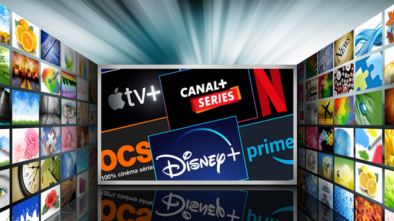Understanding IPTV: The Future of Television
What is IPTV?
Internet Protocol Television (IPTV) is a revolutionary method of delivering television content over the Internet instead of traditional terrestrial, satellite, or cable formats. Unlike conventional broadcasting, which transmits signals through cables or satellites, abonnement iptv streams media directly to the viewer’s device using a broadband connection. This technology allows for a more personalized and flexible viewing experience.
How IPTV Works
IPTV operates on a simple yet effective principle. It uses a packet-switching technology that sends media content through the Internet in small packets rather than as a continuous signal. Here’s how it generally works:
- Content Source: Television channels and shows are captured from various sources, including satellite feeds, cable channels, and on-demand services.
- Encoding and Compression: The raw video signals are then encoded and compressed to reduce bandwidth usage while maintaining quality.
- Streaming Server: The encoded content is stored on streaming servers, which can deliver the data to viewers on demand.
- Delivery to Users: Subscribers access the content through an IPTV set-top box, smart TV, or any device with internet capability, such as smartphones or tablets. The device decodes the signal, allowing users to watch their favorite shows in real-time or on-demand.
Types of IPTV Services
IPTV services can be broadly classified into three categories:
- Live TV: This service allows users to watch television broadcasts in real time. It typically includes popular channels and live events such as sports and news.
- Video on Demand (VOD): With VOD, subscribers can choose from a library of content to watch at their convenience. This feature is similar to streaming services like Netflix and Hulu.
- Time-Shifted TV: This service allows viewers to catch up on previously aired shows. It includes functionalities like start-over and catch-up TV, which lets users resume a show from where they left off or watch episodes that have recently aired.
Advantages of IPTV
IPTV offers several benefits over traditional broadcasting methods:
- Flexibility: Viewers can watch content on various devices, including smartphones, tablets, smart TVs, and computers, allowing for greater flexibility in viewing locations.
- Interactive Features: Many IPTV services offer interactive features such as video-on-demand, digital video recording (DVR), and the ability to pause, rewind, or fast-forward through live broadcasts.
- Personalization: IPTV platforms often provide personalized recommendations based on viewing habits, enhancing the user experience.
- Cost-Effective: Many IPTV services offer competitive pricing compared to traditional cable and satellite packages, allowing subscribers to choose only the channels and services they want.
Challenges and Considerations
Despite its many advantages, IPTV also faces certain challenges:
- Internet Dependency: A stable and high-speed internet connection is essential for uninterrupted viewing. Slow or unreliable connections can lead to buffering and degraded video quality.
- Regulatory Issues: IPTV services are subject to varying regulations across countries, which can impact the availability and legality of certain channels and content.
- Security Risks: As IPTV services rely on the internet, they can be vulnerable to hacking and piracy, posing risks to both providers and users.
The Future of IPTV
The IPTV market is poised for significant growth. With advancements in internet technology, such as 5G, the quality and reliability of IPTV services are expected to improve further. Additionally, the integration of artificial intelligence (AI) and machine learning (ML) can enhance personalization and user experience.
As more consumers seek flexible and convenient viewing options, IPTV may continue to disrupt traditional broadcasting models, offering a diverse array of content tailored to individual preferences.
Conclusion
IPTV represents a significant shift in how we consume television content, combining the benefits of traditional broadcasting with the flexibility and interactivity of the internet. As technology evolves, IPTV is likely to become an integral part of our media consumption habits, shaping the future of television for generations to come.



